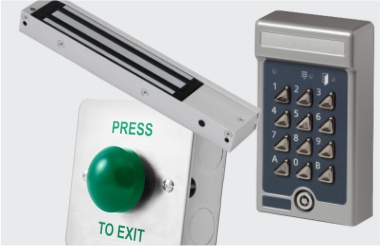What Are The Benefits Of Access Control For Businesses?
Whatever the size of your business, security has to be a top priority. Whether you are a small company with two or three employees, or a large corporation with 10,000 employees and multiple sites, you need to safeguard your people first and foremost, and then the assets of the business; buildings, materials, product and equipment.
Access control systems are the best way of doing this, through designing a system that allows you to manage access to the business in a practical and workable way, and which enables you to fulfil your primary duty of providing a safe and comfortable workplace for your employees.
What is access control?
An access control system is the process through which you manage access to your business. There are various means of doing this in terms of IT and related software and hardware, but in essence, access control involves:
- Having a system to authorise who has access
- Having a system to enable entry to the business for those who meet the correct credentials
- Monitoring who has access to the business and when
In designing an access control system, a business needs to consider the size and nature of the operations, the flow of people and the inherent security risks. But essentially there are three elements to an access control system:
- The physical entry system and the means of granting access (ie, code, PIN, key fob, biometric features)
- The control system in terms of IT hardware
- The operational system in terms of working procedures, personnel, authorisation and responsibilities
How access control systems can benefit your business
Regardless of the type of access control system you opt for and the size and nature of your business, the range of benefits are usually the same across the board. These can include:
- Ease of access for employees – Once you have agreed on the credentials a person should meet in order to gain access to the building, the system will then allow access when presented with them, ie. a unique code or PIN, a signal from a key fob or card, or a biometric feature. The system you choose is what works best for your people and your business, in terms of the flow of people and how you need to regulate this.
- Security improvements – You can avoid the use of physical keys, which are becoming an obsolete technology. Keys can be lost and can be copied, and so present security risks, they can also be forgotten and because there is a physical interaction required between a key and a lock, it is possible to forget to lock the door and open the business up to a security risk. Smart and digital alternatives remove many of these risks.
- Automatic entry – The various methods used by authorised employees to gain entry means the access control system can be automated and unmanned. This means you don’t need to employ someone specifically to monitor and control this, and you can free up responsibilities to be used elsewhere in the business.
- 24/7 – Because the system is automated, it can be used on a 24/7 basis and hence people can come and go out of hours. This means the business can operate for longer hours which may improve efficiencies and results.
- Integrate – Most modern access control systems can be integrated with other smart systems to provide more functionality, this could be lighting, heating, CCTV or ANPR, which can lead to cost savings and improved security.
- Monitor – A good access control system will provide the business with live data on entry and exit times and who is on site at any one time. This is essential for health and safety purposes, but can also be useful for disciplinary purposes, attendance records and for identifying security breaches.
- Flexible – Enabling employees to log themselves in and out freely means you can introduce self-managing flexible working patterns, which can bring morale and productivity benefits for the business, and can easily be managed by monitoring the entry and exit data.
- Section-off buildings – On a large site you can have access control systems managing external entry, but can also introduce similar systems for managing internal access. Where sites have multiple departments and levels of authorisation, you can easily section-off parts of the site to restrict personnel access as necessary.
- Compliance – Access control systems can demonstrate compliance with various requirements in terms of public liability, health and safety, data protection and industry regulations.
Fundamentally, access control systems give the business a smarter and more comprehensive overview of security, providing more peace of mind and much better functionality.
Contact MB Direct for more information about access control systems
If you are interested in improving your business security and delivering change through smart controls and additional functionality, contact MB Direct to discuss our range of access control systems. We can supply a tailored solution that embraces IT in a way that suits your business and delivers real improvements.